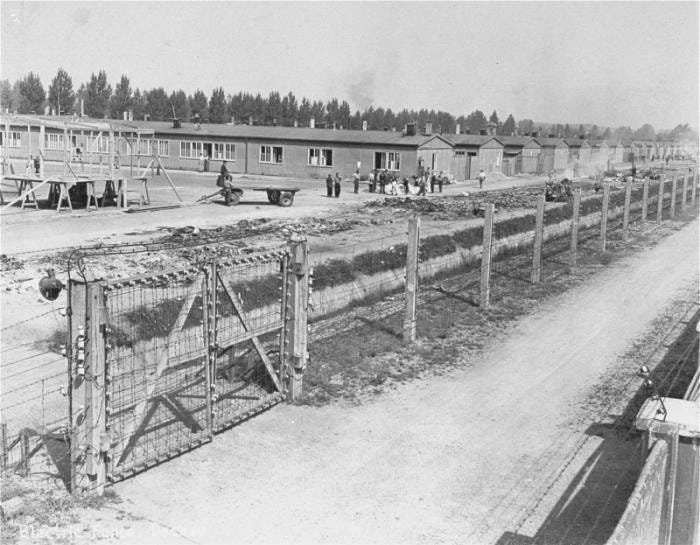A new Israeli government proposal to forcibly relocate more than 600,000 displaced Palestinians into a confined area in southern Gaza has been condemned by legal scholars, former officials, and human rights observers as a war crime and another step toward ethnic cleansing.
The plan, revealed last week by Israeli Defense Minister Israel Katz and swiftly endorsed by Prime Minister Benjamin Netanyahu, would see a massive internment-style camp erected where the city of Rafah once stood, now reduced to rubble from months of Israeli bombardment.
In reporting by Dahlia Scheindlin for Haaretz, the policy is described as "forced displacement on pain of death or starvation, as a prelude to expulsion." Scheindlin warns that the Netanyahu government’s intentions for Gaza are no longer ambiguous but openly declared—and chilling in their implications.
A group of 16 senior Israeli legal scholars has issued an extraordinary public letter declaring the plan to be illegal under both Israeli and international law. As reported by Haaretz, the letter was addressed to Defense Minister Katz and IDF Chief of Staff Eyal Zamir, and also sent to the Attorney General and top legal advisors.
The four-page document warns that the “humanitarian city” constitutes a “manifestly illegal order” that Israeli soldiers are obligated to disobey under the longstanding “black flag” doctrine established by Israeli courts in the 1950s.
The letter further states:
“Executing this plan would represent a list of war crimes, crimes against humanity, and under certain conditions, might fall under the rubric of the crime of genocide.”
As Haaretz emphasizes, the plan is not theoretical. It was officially presented in a government briefing, not leaked or speculative. When the IDF’s initial implementation proposal was deemed too expensive and slow, Netanyahu demanded a faster, cheaper alternative.
Scheindlin points out that this government—elected in December 2022—is Israel’s most explicit in stating its long-term goals for the Palestinian territories. Coalition agreements between Netanyahu’s Likud party and Religious Zionism openly endorse annexationist ambitions and, in Gaza, a strategy of displacement cloaked in euphemisms.
The term “humanitarian city” is viewed by critics as a cynical distortion. “There is nothing humanitarian about it,” Scheindlin writes. In reality, the plan envisions concentrating Palestinians in tents, in a barren zone without water, electricity, or sewage systems, and restricting their movement—effectively a concentration camp, former Prime Minister Ehud Olmert warned in an interview cited by Haaretz.
Olmert went further, telling The Guardian that the plan amounts to “ethnic cleansing.” The sentiment is echoed by a growing number of Israeli military analysts and scholars.
Michael Milshtein, a former IDF intelligence officer and now head of Palestinian studies at the Moshe Dayan Center, warned in Haaretz that the site selected for the camp—the corridor between Rafah and the sea—cannot physically contain 600,000 people. “You just can’t fit them in,” he said. “And then, consider that you have no civilian infrastructure—no homes, no water lines, no electricity, nothing.”
Noa Shusterman Dvir, a security analyst at MIND Israel, told Haaretz that the policy could even undermine Israel’s legal position that it is no longer an occupying power in Gaza—potentially exposing Israel to greater international legal obligations, including full responsibility for Gaza’s civilian welfare.
According to Haaretz, the military campaign has already killed staggering numbers of civilians. Over the past weekend alone, some 140 Palestinians died—many while seeking food or water at distribution points. A months-long siege on fuel and supplies has left humanitarian aid "trickling" in, while much of it remains inaccessible due to Israeli strikes or logistical collapse.
Critics also warn that corralling hundreds of thousands into a fenced zone could lead to long-term chaos. Without governance or services, these camps could devolve into breeding grounds for crime, radicalization, and despair. Some Israeli voices have even floated the idea of “de-radicalization” camps—raising deeply disturbing comparisons to authoritarian re-education systems.
Scheindlin notes that the plan has further strained Israel’s fragile relationship with Egypt, which views the proposed camp as a direct security threat on its border. Egypt has consistently opposed any effort to force Palestinians toward the Sinai and warned Israel against destabilizing the border region.
The government’s own rhetoric, and its policy’s implications, have prompted comparisons to some of the darkest chapters of history. Haaretz observes that even mainstream Israeli media have begun using terms like “thinning out” and “concentration” to describe the forced transfer of Palestinians from other parts of Gaza into the proposed Rafah camp.
Those who reject such comparisons, Scheindlin writes, might do better to oppose the policies that invite them. “What else can you call it when authorities try to stuff 600,000 people into tents with no infrastructure, forbid them from leaving, and call it humanitarian?” she asks.
While it's unclear whether the plan will be implemented in full, there is growing concern that the current trajectory leads to a re-imposition of direct Israeli military rule over Gaza, as advocated by far-right ministers like Bezalel Smotrich.
As Haaretz and Scheindlin document, the government’s intentions are no longer hidden—they are being executed. And if this plan proceeds, it could mark the deadliest move yet in the history of the Israeli-Palestinian conflict.





A review of the history, from 1948 forward, traces the path to precisely this end. Early Israeli leaders, from Ben Gurion forward, acknowledged publicly that full settlement of the State of Israel would require pushing Palestinians first into the margins, now known as the Gaza Strip, and then into sea if need be. We seem to be nearly there, with the United States as founder, enabler and apologist. We have supported Israel in doing what the expansionist British colonies and then the U.S. did for three centuries, and has continued to do. At the risk of political capital (read: AIPAC, Christian Zionists and influential Jewish entrepreneurs), our leaders have tread lightly here, if at all. And now, we walk in criminality as well.
This is horrifying, MJ.